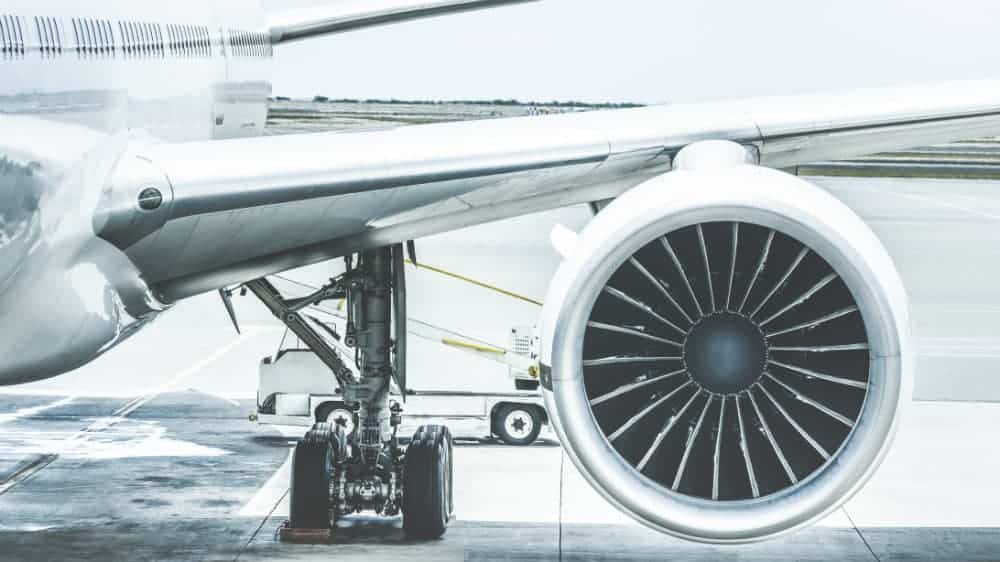Airlines are among the stocks hardest hit by the coronavirus pandemic and latest market meltdown. All the major U.S. carriers have seen their stocks plunge since the start of 2020. The worst affected is United Airlines, which is down by 69%. Whereas Southwest Airlines, one of legendary investor Warren Buffett’s holdings, is the least impacted, shedding 36%. The largest U.S. airline by revenue, Delta Airlines (NYSE:DAL), another Buffett investment, has lost 58%. There are claims that Buffett, through his company Berkshire Hathaway, has taken a US$5 billion hit on his airline investments.
Domestic flag carrier Air Canada (TSX:AC)(TSX:AC.B) was among those most harshly impacted, initially plunging by over 70%, but it rallied recently to now be 59% lower. There is speculation that worse is ahead for airlines, although Air Canada’s situation may not be as dire as some claim.
Poor short-term outlook
The coronavirus pandemic has forced governments across the globe to restrict movement and shutter non-essential services. Many have closed their borders, implemented travel bans, and enacted significant restrictions on internal movement. That has all but killed the international tourism industry.
The demand for air travel has collapsed in an unprecedented manner — far worse than even in the wake of the September 2001 terrorist attacks. Airlines across the world have been forced to ground their fleets. U.S. airline executives believe that it could be up to two months before some sense of normalcy returns to the industry. Most international carriers have no intention of recommencing flights until some time in June.
Delta is burning cash
Airlines have embarked on strategies aimed at minimizing costs and the financial impact of the current crisis. The severity of the crisis is underscored by Delta making even deeper cuts to its operations, substantially exceeding those it had initially announced. Delta slashed seat capacity by 70%, reduced international flights by 80%, and parked roughly half of its fleet.
At the start of April, Delta disclosed that passenger volumes were only 6% of what they had been for that time of year. Management stated that it was burning through more than US$60 million daily, highlighting the considerable financial impact of the coronavirus crisis.
Delta recently secured a US$2.6 billion credit facility to provide capital to survive the pandemic and ensuing economic fallout. That will eventually need to be repaid once the coronavirus crisis ends. It significantly increases Delta’s existing debt which at the end of 2019 stood at US$22.5 billion for long-term debt, pension liabilities, and leases alone. This indicates that Delta will emerge from the coronavirus crisis in a weak financial state.
This explains why Buffett reduced his exposure to Delta, selling 13 million shares two weeks ago, cutting his take by around a fifth.
Air Canada is different
Air Canada’s 58% decline has sparked considerable speculation as to whether it represents a deep-value opportunity or a risky play that could see shareholders lose their investment. Unlike Delta, Air Canada operates in a less-competitive market. It is also Canada’s flag carrier, meaning that a bailout from Ottawa is likely to happen if the situation worsens.
Air Canada also has significantly less debt and is in a sounder financial position than Delta and many other U.S. airlines. It finished 2019 with $11 billion in long-term debt, leases and pension liabilities, and a whopping $5.9 billion in cash and short-term investments. Air Canada’s net debt, leases, and pension liabilities represents a low 27% of its 2019 revenue and a mere 1.5 times EBITDA. In a normal operating environment, that indicates Air Canada’s debt and related long-term liabilities are quite manageable.
Looking ahead
Like other carriers, Air Canada has instituted a range of measures to weather the current crisis. This includes slashing capacity by up to 90%, reducing costs and capital expenditures to the tune of $500 million, furloughing a large portion of its employees, drawing down $1 billion in credit to boost liquidity, and cutting executive salaries.
Air Canada’s bankruptcy risk, even in the current environment, appears low. While it will take some time for air travel to return to normal, Air Canada will emerge from the crisis leaner and more profitable. There is every likelihood that Air Canada’s stock could fall again, but once the crisis ends and the economy returns to growth, it will soar.










